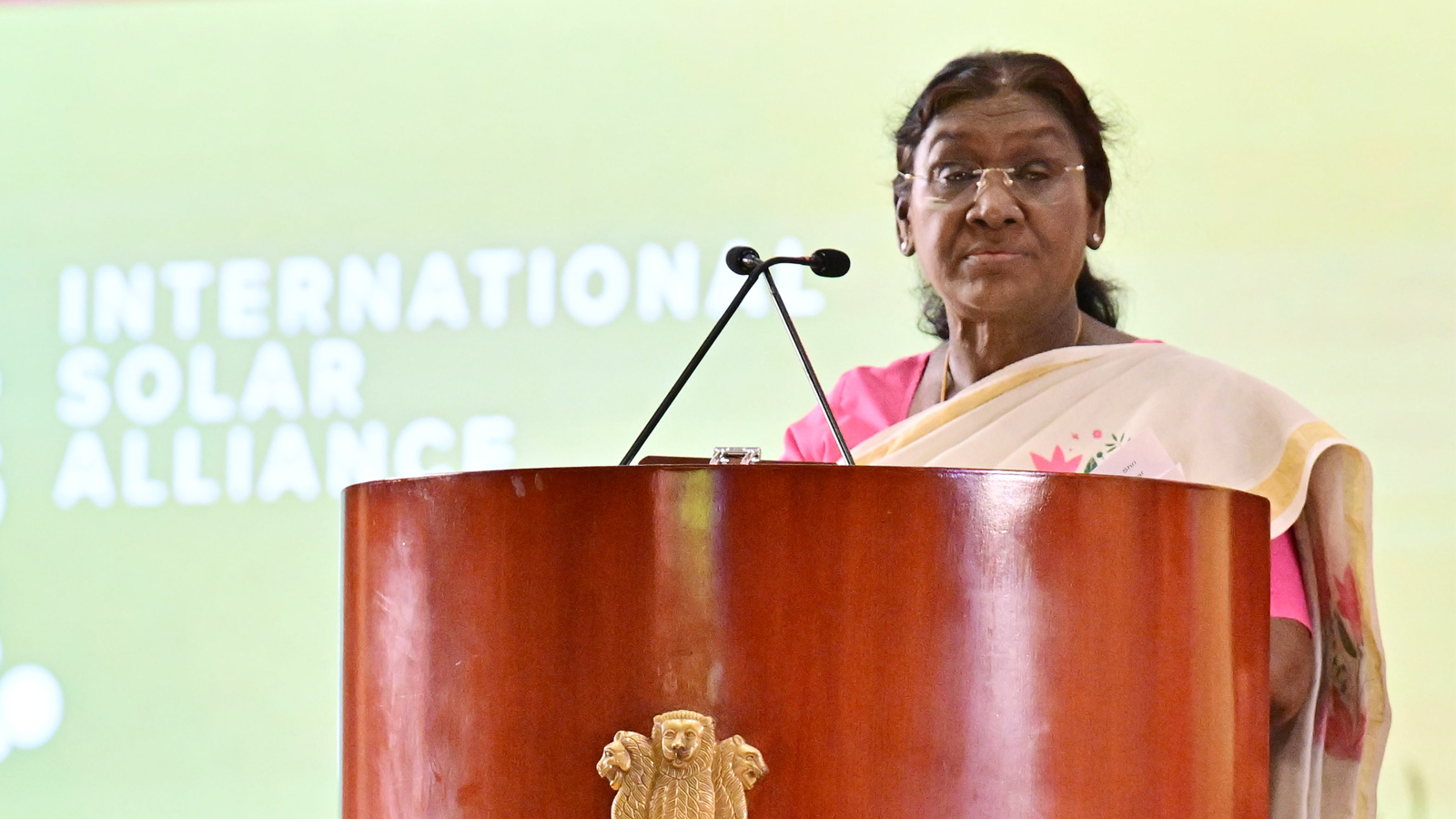President Droupadi Murmu on Tuesday inaugurated the opening plenary of the Eighth Session of the International Solar Alliance (ISA) Assembly in New Delhi, calling upon member countries to link solar energy with job creation, women’s empowerment, rural livelihoods, and digital inclusion.
In her address, President Murmu described the ISA as “a symbol of humanity’s shared aspiration – to harness solar energy as a source of inclusion, dignity, and collective prosperity.” She said that climate change poses a grave threat to the entire world, and urgent, concrete steps are needed to tackle it. India, she noted, is taking determined action to combat climate change and promote the adoption of clean and renewable energy.
Highlighting India’s commitment to equitable growth, the President said that the country’s development journey is rooted in the principle of inclusion. “Energy equity is the foundation of social equity,” she asserted, adding that access to affordable and clean energy empowers communities, drives local economies, and opens up new opportunities.
Referring to the Government of India’s “Solar for All” initiative, President Murmu said solar energy should not remain confined to the rooftops of the privileged but should illuminate the homes of the poorest. “Solarisation at large scale will democratise energy use, enabling citizens to become active participants in building a cleaner and more equitable planet,” she added.
The President lauded the ISA’s ‘Solar for She’ initiative, which focuses on empowering women through policy, finance, and skills development. She highlighted that women across India and other member countries are emerging as solar engineers, entrepreneurs, and trainers, maintaining mini-grids and operating solar pumps.
“Their leadership ensures that solar energy not only reduces carbon footprints but also breaks gender barriers,” she said, expressing confidence that energy access in the hands of women will transform communities.
President Murmu underscored India’s achievements in the renewable energy sector, noting that the country ranks fourth globally in total renewable energy installed capacity, third in solar power generation, and fourth in wind power. She said India’s installed solar capacity has already crossed 120 gigawatts, marking a significant step toward the goal of 500 GW of non-fossil fuel capacity by 2030.
Looking ahead, she said India aims to become a global hub for solar innovation, manufacturing, and knowledge exchange by 2050. Initiatives such as the Pradhan Mantri Kisan Urja Suraksha evam Utthan Mahabhiyan (PM-KUSUM) are also ensuring energy security for farmers while advancing the nation’s clean energy goals.
The President acknowledged the ISA’s progress through initiatives such as the Global Solar Facility, Small Island Developing States Platform, and Africa’s Solar Mini-Grid Programme. She urged the Assembly to further enhance inclusivity so that “no woman, no farmer, no village, and no small island is left behind in this solar revolution.”
Calling for responsible expansion of solar infrastructure, she emphasized the need to preserve ecological balance. “Environment conservation is the very reason we are turning to green energy,” she reminded delegates.
President Murmu concluded her address with a call for global cooperation and intergenerational responsibility, “We must work with dedication not only for our own countries but for the entire world – and not only for the present generation but for the future generations. Together, let us strive for a brighter, greener, and more inclusive future.”














